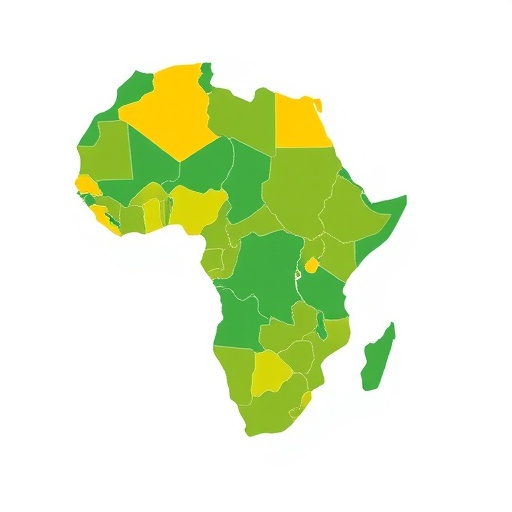The quest for understanding the interplay between social cohesion, institutional quality, and subjective well-being has gained significant traction in recent years, especially in the context of the African continent. A recent study titled “The Ties that Bind Us: How Social Cohesion and Institutional Quality Shape Subjective Well-Being in Africa,” authored by Kirsten and Bonga-Bonga, deep dives into this intricate relationship. The pressing question is: how do social bonds and effective governance contribute to individual happiness and quality of life?
In their research, Kirsten and Bonga-Bonga examine the foundational role of social cohesion. Defined as the extent of trust, reciprocity, and social networks among individuals in a community, social cohesion is a critical determinant of societal stability and individual satisfaction. The duo posits that in societies where social cohesion is pronounced, individuals are more likely to report higher levels of happiness. This is largely because robust social networks provide emotional support, catalyzing positive mental health outcomes and a sense of belonging.
Moreover, the authors emphasize that social cohesion is not just about interpersonal relationships; it extends to institutional frameworks that govern societies. In many African nations, the effectiveness of institutions can vary significantly, impacting citizens’ lives profoundly. If institutions are perceived as fair, trustworthy, and effective, they foster an environment where social trust flourishes. This, in turn, enhances the subjective well-being of individuals, creating a cycle of trust and satisfaction that can lead to broader societal improvements.
The study employs a mix of quantitative and qualitative methodologies to analyze data from various African countries. The researchers gathered data reflecting citizens’ perceptions of social cohesion and the quality of governance they experience in their daily lives. Through rigorous statistical analysis, the findings reveal a clear correlation: higher levels of social cohesion and institutional quality directly contribute to increased individual well-being.
Interestingly, the authors also bring attention to the cultural nuances that define African societies. African nations are marked by diverse traditions, languages, and social structures, which inevitably influence how individuals perceive social cohesion and governance. This cultural aspect is essential, as it highlights the need for tailored approaches in policy-making that consider the unique contexts of different communities. The study suggests that one-size-fits-all solutions may overlook these vital cultural differences, potentially undermining efforts to enhance well-being.
Kirsten and Bonga-Bonga further investigate the implications of their findings for policymakers. The authors argue that investment in social programs that promote community engagement and strengthen social networks could yield substantial returns in terms of individual happiness and overall societal health. They advocate for initiatives that encourage cooperative activities, communal projects, and trust-building measures, which not only foster social bonds but also create an environment of mutual support and resilience.
Furthermore, the study highlights the role of education in enhancing both social cohesion and institutional quality. Education serves as a powerful equalizer, equipping individuals with the knowledge and skills necessary to engage constructively within their communities. When people are educated, they are more likely to trust institutions and participate in governance. This participatory approach leads to more representative decision-making processes, ultimately enhancing the quality of institutions and governance mechanisms.
Another critical aspect explored in the study is the relationship between economic stability and social cohesion. The authors contend that economic challenges often strain social ties, leading to a deterioration in both individual and collective well-being. Economic disenfranchisement can breed frustration and distrust in institutions, negating the potential benefits of social cohesion. Therefore, addressing economic disparities is fundamental to fostering environments where both social ties and quality governance can thrive.
The implications of these findings extend beyond academic discourse; they have real-world relevance for various stakeholders, including governments, NGOs, and community organizations. For instance, initiatives aimed at improving the quality of local governance should also focus on enhancing social cohesion. This integrated approach can lead to more effective governance structures that genuinely reflect the needs and aspirations of the population.
Moreover, the authors highlight the critical role of international organizations in supporting African nations’ efforts to improve both social and institutional frameworks. Collaboration and knowledge-sharing among countries can facilitate the exchange of best practices, leading to enhanced strategies that promote social cohesion and improved governance.
Despite the prevalent challenges, the study presents a hopeful narrative. By understanding the dynamics of social cohesion and institutional quality, African nations have the potential to create pathways to improved subjective well-being. Ultimately, the research emphasizes that happiness is not merely an individual pursuit but a collective endeavor that benefits from strong social ties and resilient institutions.
In conclusion, Kirsten and Bonga-Bonga’s research illuminates the essential connections between social cohesion, institutional quality, and subjective well-being in Africa. Their work serves as a clarion call for policymakers and communities alike to recognize the importance of these relationships in shaping happier societies. By investing in social networks and governance mechanisms, African nations can take significant strides toward enhancing the lives of their citizens.
The implications of this research could be transformative. As understanding grows about the factors that contribute to well-being, specific strategies can be devised to tackle the unique challenges faced by African societies. Efforts to bridge divides, promote solidarity, and build trust could lead to a more cohesive, prosperous future for communities across the continent.
Subject of Research: The influence of social cohesion and institutional quality on subjective well-being in Africa.
Article Title: The Ties that Bind Us: How Social Cohesion and Institutional Quality Shape Subjective Well-Being in Africa.
Article References:
Kirsten, F., Bonga-Bonga, L. The Ties that Bind Us: How Social Cohesion and Institutional Quality Shape Subjective Well-Being in Africa.
Applied Research Quality Life (2025). https://doi.org/10.1007/s11482-025-10514-1
Image Credits: AI Generated
DOI: https://doi.org/10.1007/s11482-025-10514-1
Keywords: social cohesion, institutional quality, subjective well-being, Africa, happiness, governance.




